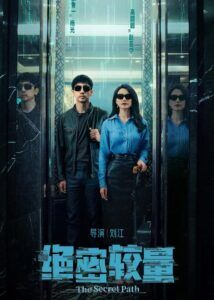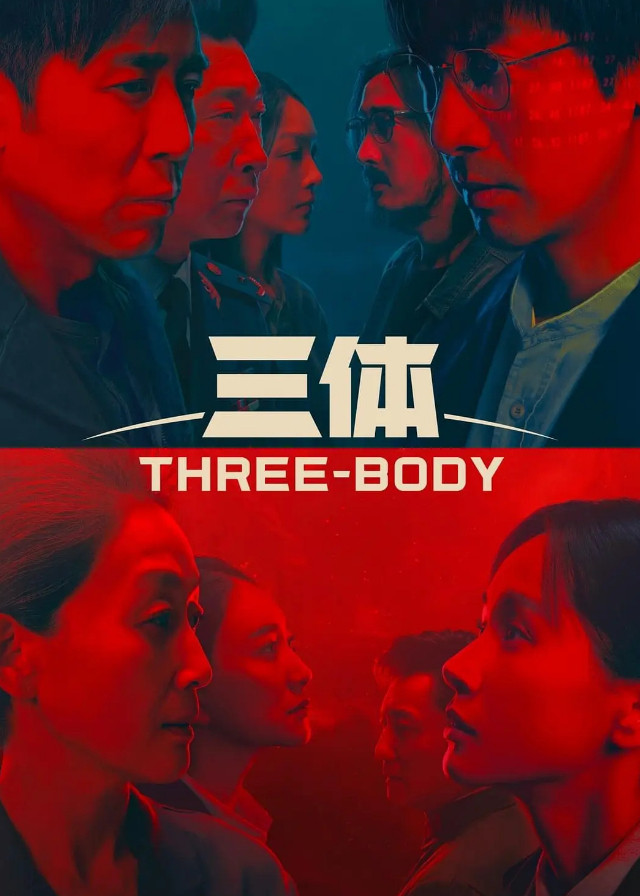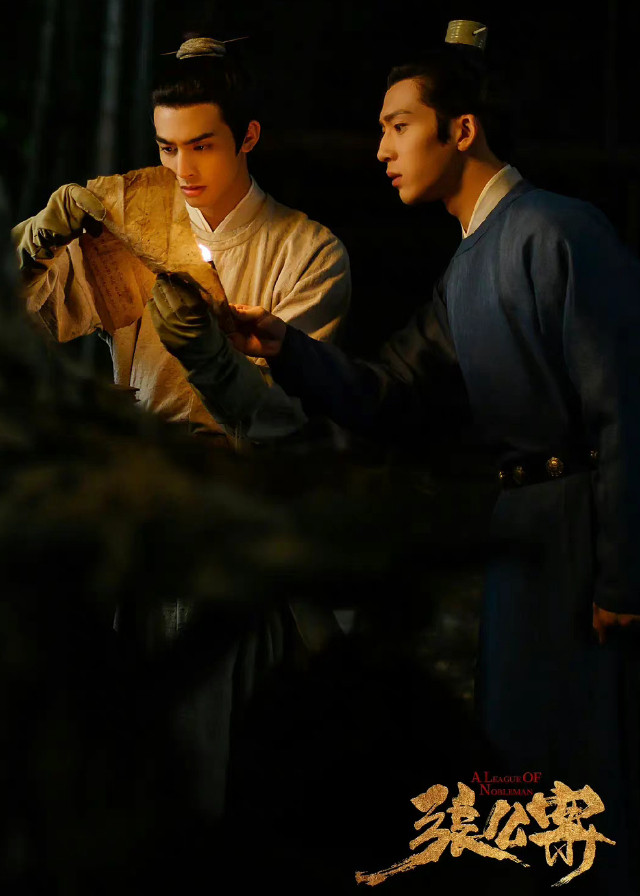Three-Body Episode 18 Recap
> Three-Body Recap
Political Commissar Lei Zhicheng officially transferred Ye Wenjie to the Monitoring Department, explaining its work. He stated that the department's goal was to monitor all enemy activities in space, including intercepting communications between enemy spacecraft and the ground, tracking their orbital positions, and collaborating with telemetry and tracking centers to provide data for Red Coast's combat systems, effectively making it "the eyes of Red Coast."
Chief Engineer Yang Weining attempted to intervene, urging Lei Zhicheng to reconsider disclosing such sensitive information to Ye Wenjie. However, Lei Zhicheng insisted that work must progress and Ye Wenjie needed all the information to perform her duties effectively, taking full responsibility for his decision. Lei Zhicheng further elaborated that Ye Wenjie was initially brought in due to her paper and accurate predictive model concerning solar activity, as the Red Coast monitoring system often faced interference from solar flares.
Her strong work abilities led him to entrust her with more significant tasks. He expressed his personal trust in her, hoping she would work hard to earn the organization's trust and that one day he could address her as "Comrade Ye." Despite Lei Zhicheng's trust, Ye Wenjie found her activities severely restricted; she could access software source code but not the database, and had to learn most technical software from scratch, making the process very challenging.
During her work, Ye Wenjie reported to Chief Engineer Yang Weining that the monitoring system had received information, which, after computer deciphering and analysis by GSD's Surveying and Mapping Bureau, turned out to be satellite photographs of important Chinese military targets, including the naval harbor at Qingdao and several key factories of the Third Front program. The images were confirmed to originate from a Western KA-9 reconnaissance satellite, which was undergoing experimental transmission tests.
Its immature radio digital transmission, with lower frequencies and significant signal leakage, made it detectable by the Red Coast system. Yang Weining, however, abruptly ordered her to abandon this target and change the monitoring frequency, promising to inform her of the new direction later. Ye Wenjie questioned this, arguing it was a unique opportunity to understand Western space reconnaissance systems. Yang Weining grew agitated, angrily reiterating his order and dispatching her to check a broken machine in the Transmission Department.
Ye Wenjie felt that Yang Weining was intentionally hindering her, exhibiting strange behavior and frequently lashing out, though she remained unfazed. Instead, she became intrigued by the many inexplicable occurrences she encountered, which led her to believe that Red Coast was far more intricate than she had initially imagined.
She observed that the designated frequencies for three particular transmissions during the 299th launch of the Red Coast Project were below the microwave range, meaning they could not generate any heating effect on the target. Ye Wenjie concluded that both Yang Weining's peculiar conduct and these abnormal phenomena strongly suggested that the true intent behind Red Coast was deeply hidden and top-secret.
In a separate conversation, Shi Qiang called Chang Weisi from Qijiatun, confirming that the red ginseng factory there was legitimate and provided income for the locals. He then pressed Chang about the declassified files he had promised, emphasizing his urgent need for them. Chang Weisi confirmed he had obtained the files and that their content was "way beyond imagination," prompting Shi Qiang to demand he reveal Red Coast's true purpose.
Meanwhile, Ye Wenjie was summoned to Political Commissar Lei Zhicheng's office. She initially believed Lei Zhicheng was facing repercussions for promoting her and silently vowed not to implicate him. However, Lei Zhicheng informed her that while he personally disagreed with the decision, it had been made by Chief Engineer Yang Weining after repeated appeals to the high-ups, with Yang taking full responsibility for the consequences.
Lei Zhicheng explained that the Army Political Department had also investigated her work, and with superior approval, they were now authorized to disclose the true nature of the Red Coast Project to her. He stressed that she must cherish this opportunity, work diligently to "redeem her sins," and strictly adhere to all rules, as any transgression would result in severe punishment.
It was then that Ye Wenjie realized everything Lei Zhicheng had told her, including his expressions of care, promotion, and protection, had been a facade. She finally understood why Chief Engineer Yang Weining had consistently tried to obstruct Lei Zhicheng, acknowledging Yang as a good man who had stood up for her and would eventually reveal the project's true purpose.
Chief Engineer Yang Weining then confirmed Ye Wenjie's commitment, warning her that once she understood the truth, she would lose any hope of leaving Radar Peak, and it would become her lifelong home. Ye Wenjie, unwavering, agreed. Yang Weining then presented her with a confidential file. He explained that the document outlined two modes for converting fundamental scientific research into practical technology: the gradualistic and saltatory modes.
Yang Weining particularly emphasized that the Search for Extraterrestrial Intelligence (SETI) was the field most likely to produce a technological leap, one whose impact would exceed the combined influence of breakthroughs in physics, biology, and computer science. It was through this revelation that Ye Wenjie understood Red Coast was neither an offensive weapon nor a system for monitoring enemy spacecraft.
He detailed how NATO countries were already prioritizing SETI, citing Project Ozma, the Green Bank National Radio Astronomy Observatory, their target stars Tau Ceti and Epsilon Eridani, and plans for the Pioneer and Voyager probes to carry information about Earth civilization into space. He also highlighted the formidable capabilities of the newly constructed Arecibo Observatory and the substantial investments made by European nations in this endeavor.
Yang Weining stressed that any nation establishing contact with extraterrestrial civilizations would fundamentally alter the global power dynamic, and as a major socialist power, they could not afford to fall behind in this strategic area. Consequently, he assigned Ye Wenjie the critical task of developing the Red Coast Self-Interpreting Code System.
This system was to be built upon universal mathematical and physical principles, forming an elemental linguistic code comprehensible to any civilization familiar with basic algebra, Euclidean geometry, and non-relativistic physics, and on this foundation, new language systems like Chinese and Esperanto would be established. Ye Wenjie grasped the profound implications, realizing that the mysterious Red Coast Project was entirely dedicated to the exploration of extraterrestrial intelligence, and that she was now the creator of its self-interpreting system.
Reflecting on the Cold War's peak, the pervasive threat of nuclear weapons, and humanity's collective madness, Ye Wenjie later conveyed to Wang Miao that while nuclear weapons were terrifying, the universe harbored far more potent forces like black holes and anti-matter, making nuclear bombs seem as gentle as a "tiny candle" in comparison. Ye Wenjie recalled her daily routine in the monitoring room, observing and recording the waveform of cosmic radio waves, perpetually awaiting contact from extraterrestrial civilizations.
She described the Red Coast's advanced radio receiver, which used a ruby-based traveling-wave maser to amplify signals received by a gigantic antenna, its core immersed in liquid helium at -269 degrees Celsius for exceptional sensitivity. This allowed them to pick up faint signals within a 1,000 light-year radius, encompassing an estimated 20 million stars. Beyond listening, Red Coast also attempted to send messages into the cosmos to establish contact.
She and Chief Engineer Yang Weining redrafted a comprehensive letter, which Ye Wenjie read aloud. This goodwill message introduced Earth civilization, highlighting its achievements—a splendid civilization, diverse cultures, and an initial understanding of nature and society—while also candidly acknowledging its flaws, such as hatred, prejudice, war, and severe wealth inequality leading to widespread poverty.
It expressed humanity's collective efforts to overcome these challenges and build a better future, portraying Red Coast's mission as part of this endeavor to create an ideal society where every individual's labor and value are respected, and all material and spiritual needs are met, ultimately making Earth a "more perfect civilization." The letter conveyed a deep hope for connection with other advanced societies to create a better life across the vast universe.
All this information, along with basic overviews of Earth, its life systems, human society, and world history, was sent after the Self-Interpreting Code System was transmitted. Wang Miao lauded Red Coast as a truly great project, inquiring about the security measures for such transmissions.
Ye Wenjie explained that the messages underwent rigorous multi-disciplinary vetting to ensure they contained no coordinates of Earth within the Milky Way, and transmission times on higher frequencies were minimized to reduce the likelihood of being located. Wang Miao expressed curiosity about the project's exceptionally high security rating despite SETI being a marginalized field at the time.
Ye Wenjie noted that this question had persisted throughout Red Coast's existence, but they could only marvel at the foresight of its top decision-makers. Wang Miao speculated that had Red Coast succeeded, the world would be profoundly different, though acknowledged it was perhaps too soon to judge its success, given how little the radio waves had traveled. Ye Wenjie added that cosmic signals weaken with distance, making reception improbable.
She cited Soviet astrophysicist Nicolai Kardashev's classification of civilizations based on their energy use for communication—Type I (Earth's total output), Type II (a star's output), and Type III (a galaxy's output)—and pointed out that Earth had not even reached Type I, and Red Coast's transmission power was merely a tiny fraction of Earth's total output, likening their call to the "buzzing of a mosquito."
Wang Miao countered that if Type II or III civilizations existed, humanity should have heard from them. Ye Wenjie agreed, suggesting that Red Coast's efforts seemed to indicate that intelligent life might indeed be unique to Earth, a conclusion she and others involved emotionally embraced. Wang Miao lamented the project's cessation, believing such a great endeavor should have continued.
Ye Wenjie then recounted the Red Coast's large-scale renovation in the late 1970s, which automated its transmission system and significantly enhanced its data processing capabilities to monitor 40,000 channels simultaneously. As understanding of SETI's immense difficulty grew, the leadership gradually lost interest, leading to a lowered security rating and a reduction in the base's security detail to just five guards.
Although Red Coast technically remained part of the Second Artillery Corps, its scientific management was transferred to the Astronomy Institute of the Chinese Academy of Sciences (CAS), which introduced unrelated research projects. Ye Wenjie confirmed that many of her own accomplishments came from this period. Initially, Red Coast, with China's largest radio telescope, undertook general radio astronomy projects.
Later, with the establishment of other radio observatories, Red Coast's focus shifted to observing and analyzing solar electromagnetic activity, necessitating the addition of a solar telescope. These practical applications finally provided some return on the substantial investment in Red Coast, a success she largely attributed to Political Commissar Lei Zhicheng. She revealed that Lei, an astrophysicist before enlisting, had helped sustain the base by introducing these projects, allowing him to return to his professional field.
However, once Red Coast was reclassified for civilian use, the military completely abandoned it, and the CAS could not sustain its immense operating costs, leading to its eventual closure. Ye Wenjie described her profound loneliness in the empty monitoring room during quiet nights, listening to the "lifeless noise of the universe" through her headphones. This subtle, seemingly eternal noise sometimes felt like the endless cold winds of Radar Peak, chilling her to the bone with an indescribable solitude.
She often contemplated that life on Earth was an "accident among accidents" in a vast, "empty palace" where humanity was merely "the only ant." This realization instilled a profound internal conflict within her, sometimes making life seem incredibly precious and weighty, and other times rendering humanity so insignificant that nothing mattered. In this strange, contradictory state of mind, she found herself growing old, day by day.















